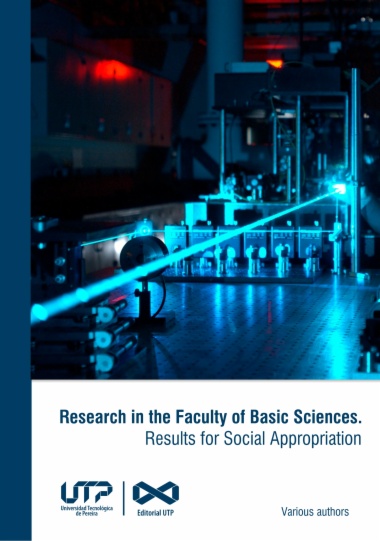As the Faculty of Basic Sciences committed to research, innovation, and social appropriation of knowledge, I have the pleasure of presenting you from our 22 research groups the results of research assigned to the Vice-Rector’s Office for Research, Innovation, and Extension of the Technological University of Pereira, which are linked to fundamental disciplines composed of the basic sciences such as biology, chemistry, geology, and mathematics. Since basic sciences constitute a fundamental basis for each research and reinforce the influence they have had throughout history on the development of science and technology.
- Cover
- Title page
- Copyright page
- Contents
- Introduction
- Chapter one. Optical properties of TiFe2O4 nanoparticles prepared by pulsed laser ablation in a liquid environment and their application in mercury removal.
- 1. Introduction
- 2. Experimental details
- 3. Results and discussion
- 3.1. UV-Vis analysis
- 3.2. Band gap estimation
- 3.3. HgCl Removal test
- 4. Conclusions
- 5. Acknowledgements
- References
- Chapter two. Accurate Length Estimation of Linear Variant Blur Through Segmentation Windows
- 1. Introduction
- 1.1. Motion Blur Review
- 1.2. Motion Blur Description.
- 2. Materials and Methods
- 3. Results and Discussion
- 4. Conclusion
- 5. Acknowledgments
- References
- Chapter three. Development and Test of a Two-Dimensional
Electromagnetic Particle-in-Cell Code
- 1. Introduction
- 2. The Particle-in-Cell Method
- 3. Numerical Methods
- 3.1. Particle Dynamics
- 3.2. Charge and Current Deposition
- 3.3. Maxwell Equations
- 4. Code Development
- 5. Benchmark
- 5.1. Two-Stream Instability
- 5.2. Electron Whistler Anisotropy Instability
- 6. Discussion
- 7. Acknowledgements
- 8. Supplemental Material
- References

